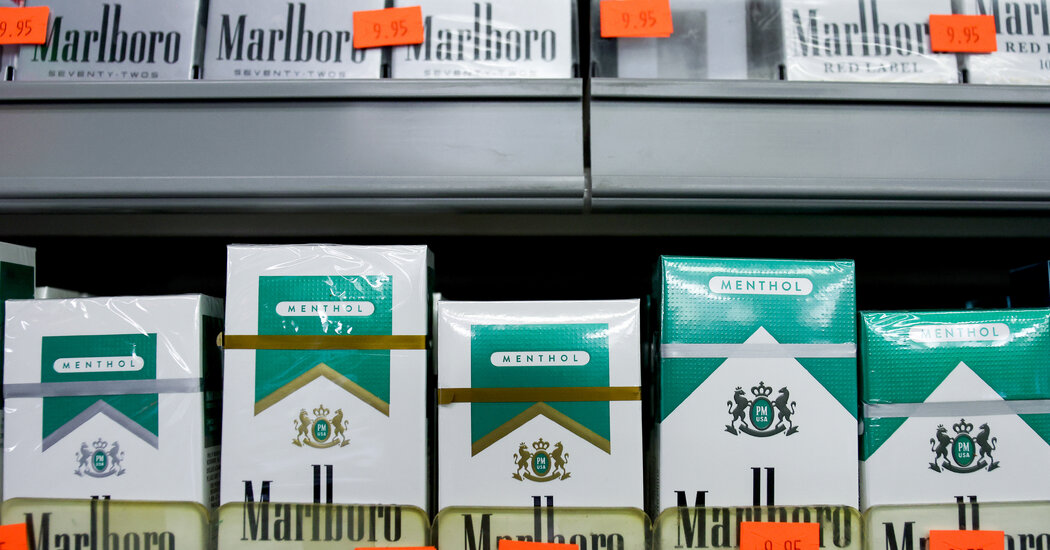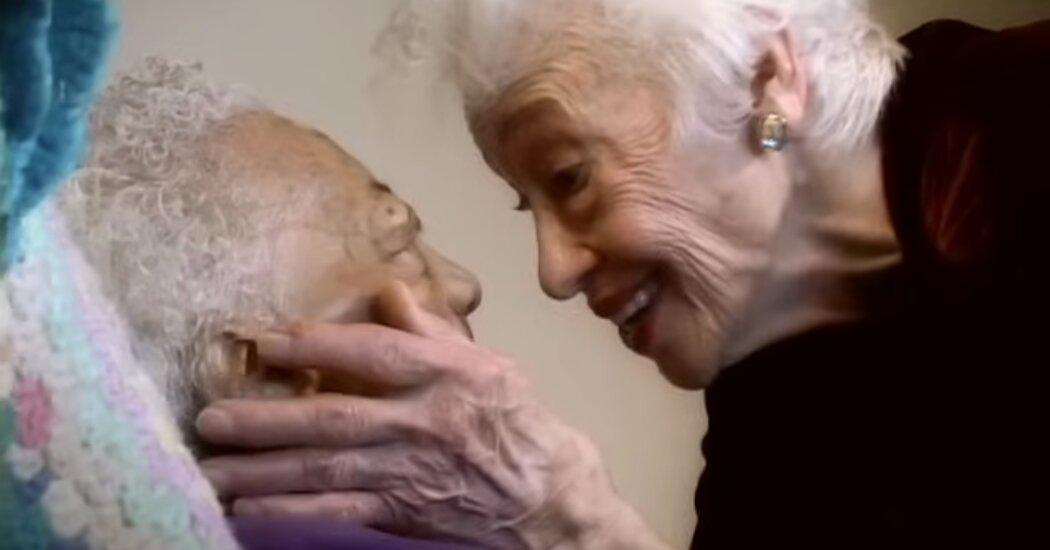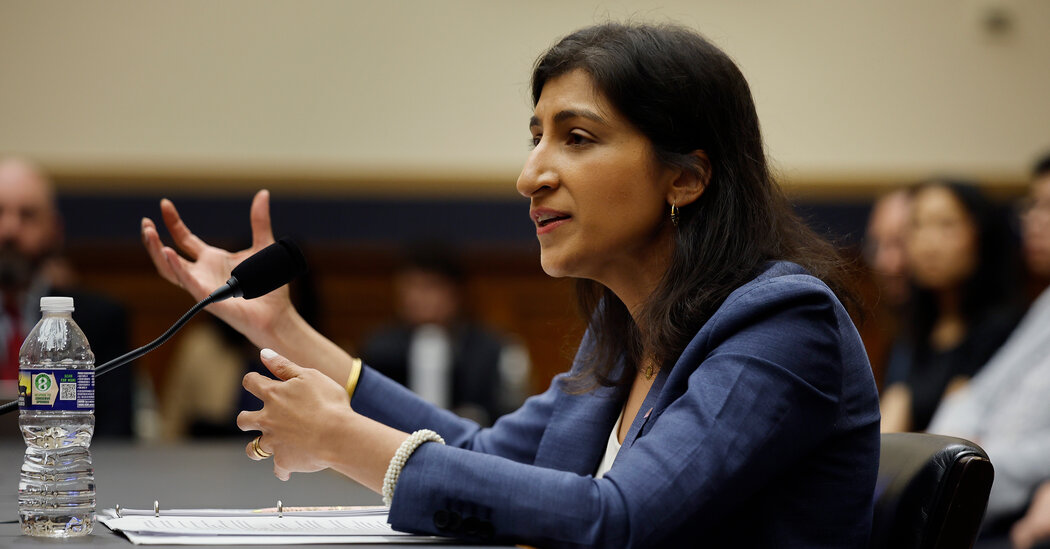The Biden administration said on Friday that it was delaying a decision on whether to ban menthol cigarettes as federal officials take more time to consider the move.
The White House has faced considerable opposition from the big tobacco companies that could lose billions of dollars from the move. But the proposal has also posed risks for President Biden in an election year because of his weakening support among Black voters, some of whom view it as heavy-handed.
“This rule has garnered historic attention, and the public comment period has yielded an immense amount of feedback, including from various elements of the civil rights and criminal justice movement,” Xavier Becerra, the health and human services secretary, said in a statement.
“It’s clear that there are still more conversations to have, and that will take significantly more time.”
The delay runs counter to a major push by federal regulators, who saw a ban as a way to save lives and lower lung cancer deaths. The idea had united an array of public health groups, including leading lung, heart, cancer and pediatricians associations.
They cite years of data suggesting that menthol cigarettes, long marketed to African-American smokers, make it more palatable to start smoking and more difficult to stop.
“Two full years after releasing proposed rules backed by extensive scientific evidence — and more than a decade since the F.D.A. began examining menthol cigarettes — the administration has failed to take decisive action to remove these deadly, addictive products from the market,” Nancy Brown, chief executive of the American Heart Association, said in a statement.
“The administration’s inaction is enabling the tobacco industry to continue aggressively marketing these products and attracting and addicting new users.”
The F.D.A. formally proposed the ban in May 2022, saying there were 18.5 million smokers who preferred menthol brands in the United States. Researchers looking at similar moves in other nations estimated that a ban could result in nearly a quarter of smokers quitting, with the rest moving to non-menthol cigarettes or managing to keep smoking menthols.
The Wall Street Journal first reported the administration’s decision on Friday.
The proposal made its way to the White House in October. Soon official calendars were flooded with meeting requests from supporters of the ban and also from opponents, which included tobacco companies, convenience stores and gas station retailers that projected that the ban would cost them billions of dollars in sales.
Reynolds American, which makes Newport menthol cigarettes, gave millions of dollars in recent years to political action funds that benefit Republican lawmakers, as well as $1 million in February to a fund supporting former President Donald Trump.
Altria, which makes some menthol Marlboro cigarettes, donated less, but also contributed to funds supporting Republican lawmakers.
Republicans in Congress have denounced the proposed ban in letters to the Biden administration, warning that it would increase trafficking in counterfeit cigarettes. Republicans also mounted a failed effort last year to keep the government from funding any work on the ban.
Opponents of the ban have sponsored prime-time commercials, criticizing the ban and saying it would fuel illicit tobacco trafficking and enrich cartels. They have helped to promote some Black leaders’ concerns that a ban would encourage law enforcement to target Black smokers. (The F.D.A. has said such a ban would be enforced at the manufacturer level.)
Increased opposition presented a conundrum to Mr. Biden, who faces a tight re-election race and waning support among Black voters.
Reynolds has argued the ban will have “serious unintended consequences,” leading to more counterfeit cigarette use that will undermine public health. Altria has raised the same argument and has also said that historically low and declining youth smoking rates do not justify pursuing a ban.
The F.D.A. had previously said that it expected to see the menthol ban finalized by the end of 2023. As months passed, public health groups amped up pressure, staging a “menthol funeral” outside the White House in January to highlight the lost opportunity to extend lives and stem smoking-related disease.
In April, the advocacy group Action on Smoking & Health and the African American Tobacco Control Leadership Council sued the administration in a bid for action.
“The F.D.A.’s own research confirms that a menthol ban would save lives; there is no scientific reason to delay finalizing this rule,” Laurent Huber, executive director of Action on Smoking & Health, said in a statement when the lawsuit was filed.







